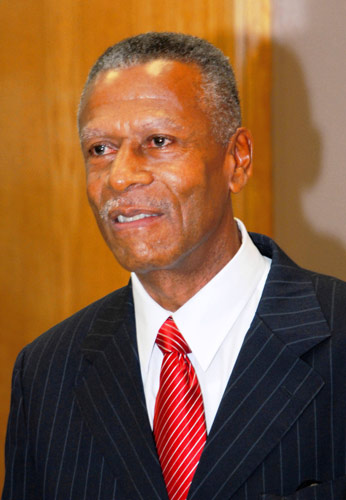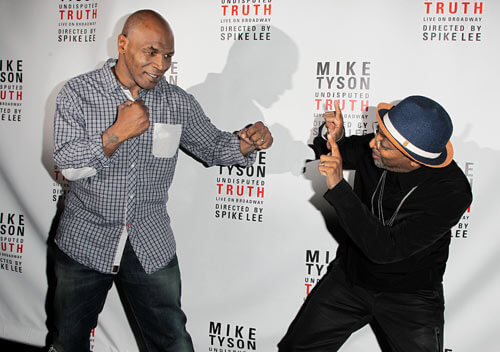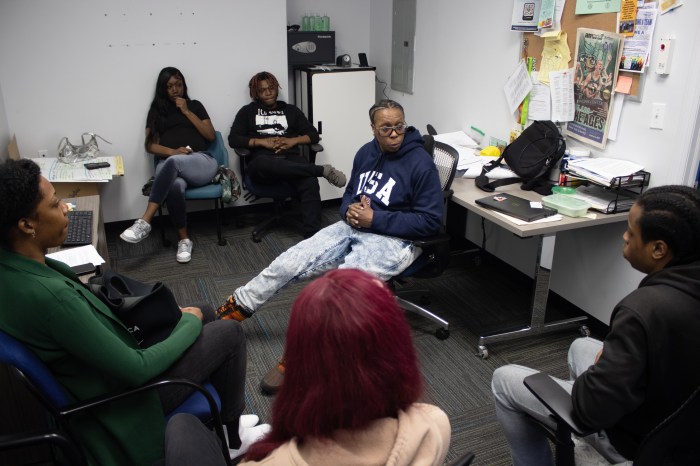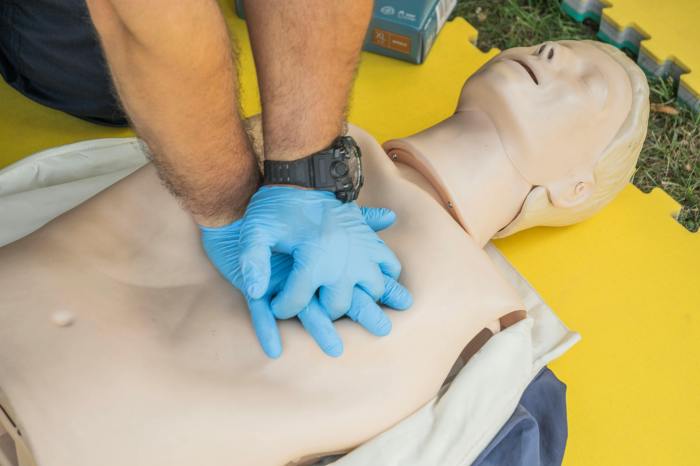The 100th St. transit bus depot in Manhattan was officially renamed recently in honor of the famed Tuskegee Airman, the African-American fighter pilots of World War II.
During a ceremony on March 23, a bronze plaque was installed in the entryway of the depot, summarizing the accomplishments of the airmen and listing the names of the 12 airmen who formerly worked for the transit system.
Additionally, the façade now bears the facility’s new name as well as a medallion featuring iconic images of the Airmen.
Reportedly, 12 of the airmen began working for NYC Transit after the war, creating an unbreakable bond that was formally recognized at a ceremony at the facility.
Reginald T. Brewster, Victor A. Collymore, Conrad A. DeSandies, Harry R. Dickerson, John R. Freeman, Noel R. Harris, Oscar W. Hawkins, Austin D. Mckenzie, Maury M. Reid, Jr. Percy E. Sutton, Victor W. Terrelonge and Fred O. Wilson are the distinguished men.
Only two – Brewster and Harris are alive to witness the historic honor.
“In renaming this state-of-the art facility, the Tuskegee Airmen Bus Depot, we pay homage to all of these former transit workers and to the memories of all of the trailblazing Tuskegee Airmen who broke through racial barriers at home just as they outthought and outfought America’s enemies overseas,” NYC Transit President Thomas F. Prendergast said.
The Tuskegee Airmen, named for Tuskegee, Alabama where they trained, were the first African-Americans permitted to fight in America’s segregated military of World War II.
“Tuskegee Airmen” refers to all who were involved in the controversial “Tuskegee Experience,” which approved the Army Air Corps’ program to train African-Americans to fly and maintain combat aircraft. The airmen included navigators, bombardiers, instructors, maintenance and support staff, as well as ground crew personnel responsible for supporting the pilots and maintaining the aircraft.
There were individuals and groups opposing the effort. They argued that it would take years to train mechanics to service the planes. They contended that a waste of money and training would surpass the war. The recruits proved them wrong and the enlisted trainees completed their training in record time. It is understood that ‘after many delays due to blatant and shameless discrimination, the 332nd Fighter Group, comprised of the 99th, 100th, 301st and 302nd Fighter Squadrons, was finally allowed to participate in the war following an impassioned endorsement from First Lady Eleanor Roosevelt.’
The Tuskegee Airmen far exceeded expectations for airmen of any race. With respect to the mechanics, it is worth noting that the Tuskegee Airmen were initially assigned hand-me-down aircraft considered insufficient for other units.
Reportedly, it often took several surplus planes to make one flight-worthy aircraft. A testament to the skill of the mechanics and other ground crew members is the success of the pilots. In fierce aerial combat over Europe and Africa, the Tuskegee Airmen pilots experienced minimal loss of the bombers to enemy aircraft fire, an achievement unmatched by any other unit.
The impressive combination of courage and exemplary performance in combat eventually generated requests from all-White bomber units for the “Red Tails” to escort their bombers over the dangerous Axis territory in Europe.
In a documentary released earlier this year, “Red Tails” spotlights the heroics achieved by the pioneering men of color.
The achievements of the Tuskegee Airmen are particularly noteworthy because they occurred during a time when the adversity and injustice of racial discrimination were not only tolerated, but encouraged and, in fact, institutionalized by the US Armed Forces.
The Tuskegee Airmen’s faith in the ideals expressed in America’s Constitution was so great, that first and foremost, they fought for the right to fight.
Then they fought selflessly in combat for the country despite the racial discrimination encountered during the war and the knowledge that discrimination awaited them upon their return home.
As a direct result of the dynamics set in motion by the achievements of the Tuskegee Airmen, racial discrimination was banned in 1948 in all U.S. Armed Forces via President Harry Truman’s Executive Order No. 9981.
Moreover, their trailblazing efforts are credited with contributing toward the enactment of the Civil Rights Act of 1964.
On March 29, 2007, the Tuskegee Airmen were awarded the Congressional Gold Medal, the nation’s highest civilian award.

























